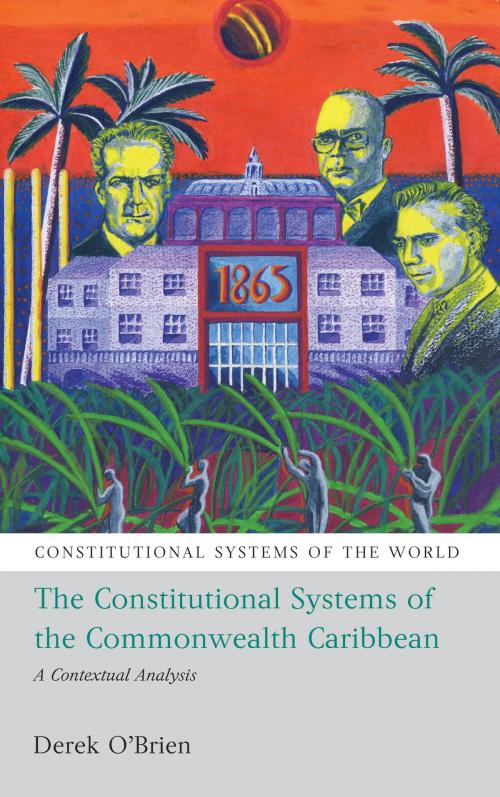The Constitutional Systems of the Commonwealth Caribbean
A Contextual Analysis
Nonfiction, Reference & Language, Law, Constitutional| Author: | Dr Derek O'Brien | ISBN: | 9781782253952 |
| Publisher: | Bloomsbury Publishing | Publication: | December 1, 2014 |
| Imprint: | Hart Publishing | Language: | English |
| Author: | Dr Derek O'Brien |
| ISBN: | 9781782253952 |
| Publisher: | Bloomsbury Publishing |
| Publication: | December 1, 2014 |
| Imprint: | Hart Publishing |
| Language: | English |
The Commonwealth Caribbean comprises a group of countries (mainly islands) lying in an arc between Florida in the north and Venezuela in the south. Varying widely in terms of their size, population, ethnic composition and economic wealth, these countries are, nevertheless, linked by their shared experience of colonial rule under the British Empire and their decision, upon attaining independence, to adopt a constitutional system of government based on the so-called 'Westminster model'.
Since independence these countries have, in the main, enjoyed a sustained period of relative political stability, which is in marked contrast to the experience of former British colonies in Africa and Asia. This book seeks to explore how much of this is due to their constitutional arrangements by examining the constitutional systems of these countries in their context and questioning how well the Westminster model of democracy has successfully adapted to its transplantation to the Commonwealth Caribbean.
While taking due account of the region's colonial past and its imprint on postcolonial constitutionalism, the book also considers notable developments that have occurred since independence. These include the transformation of Guyana from a parliamentary democracy to a Cooperative Republic with an executive president; the creation of a Caribbean Single Market and Economy and its implications for national sovereignty; and the replacement of the Judicial Committee of the Privy Council by the Caribbean Court of Justice as the final court of appeal for a number of countries in the region. The book also addresses the resurgence of interest in constitutional reform across the region in the last two decades, which has culminated in demands for radical reforms of the Westminster model of government and the severance of all remaining links with colonial rule.
The Commonwealth Caribbean comprises a group of countries (mainly islands) lying in an arc between Florida in the north and Venezuela in the south. Varying widely in terms of their size, population, ethnic composition and economic wealth, these countries are, nevertheless, linked by their shared experience of colonial rule under the British Empire and their decision, upon attaining independence, to adopt a constitutional system of government based on the so-called 'Westminster model'.
Since independence these countries have, in the main, enjoyed a sustained period of relative political stability, which is in marked contrast to the experience of former British colonies in Africa and Asia. This book seeks to explore how much of this is due to their constitutional arrangements by examining the constitutional systems of these countries in their context and questioning how well the Westminster model of democracy has successfully adapted to its transplantation to the Commonwealth Caribbean.
While taking due account of the region's colonial past and its imprint on postcolonial constitutionalism, the book also considers notable developments that have occurred since independence. These include the transformation of Guyana from a parliamentary democracy to a Cooperative Republic with an executive president; the creation of a Caribbean Single Market and Economy and its implications for national sovereignty; and the replacement of the Judicial Committee of the Privy Council by the Caribbean Court of Justice as the final court of appeal for a number of countries in the region. The book also addresses the resurgence of interest in constitutional reform across the region in the last two decades, which has culminated in demands for radical reforms of the Westminster model of government and the severance of all remaining links with colonial rule.















